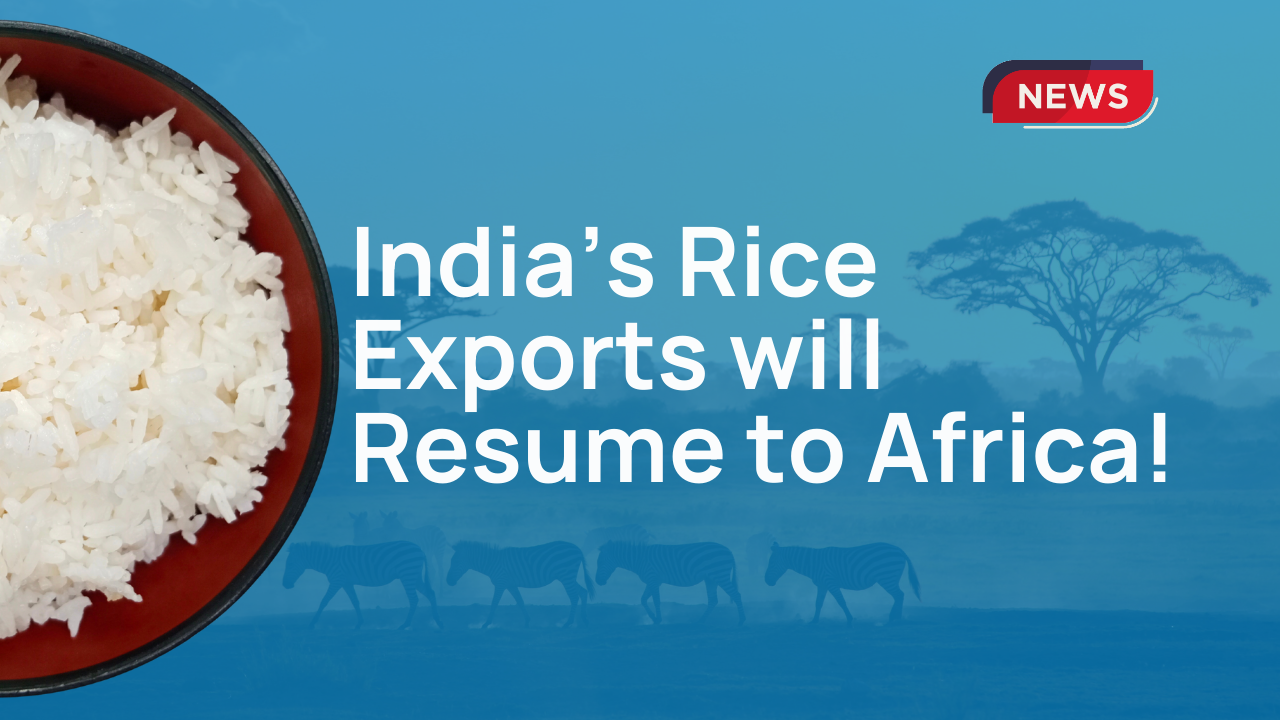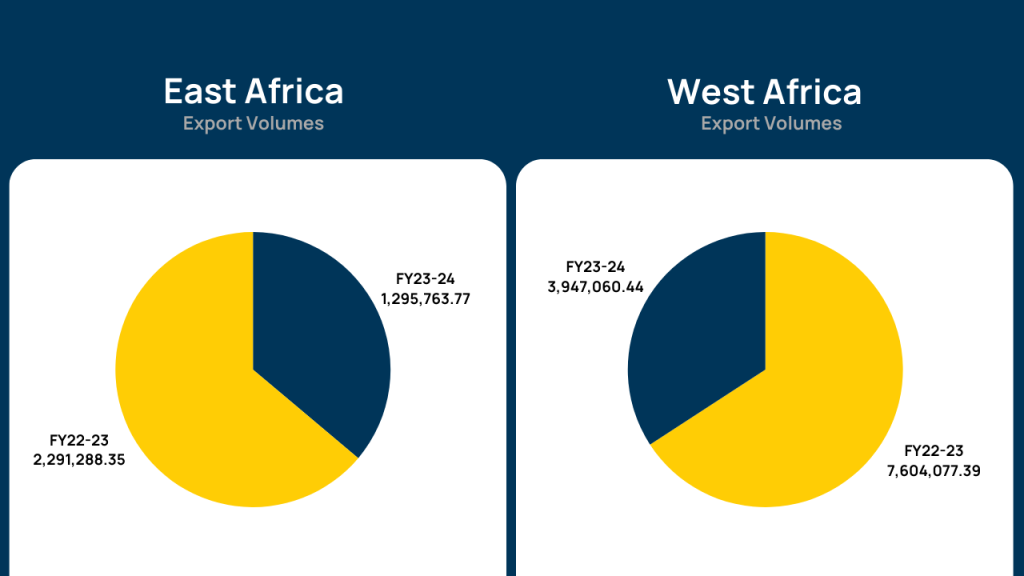
India has permitted the export of rice to three African nations: Tanzania, Djibouti, and Guinea-Bissau. Through authorized the National Cooperative Exports Limited (NCEL) to handle these exports, which total 30,000 tonnes of non-basmati white rice to Tanzania and 80,000 tonnes of broken rice to Djibouti and Guinea-Bissau.
The notification in this connection was issued by the Ministry of Commerce and Industry with the subject ‘Export of Food Commodities through National Cooperative Export Limited (NCEL)’, and it was signed by Santosh Kumar Sarangi, DG of Foreign Trade.
Earlier, in a written reply to a query raised by a Rajya Sabha MP, Union Cooperation Minister Amit Shah said, “National Cooperative Export Limited (NCEL) has so far got permission for exports of 14,92,800 MT non-Basmati White rice to 16 countries and 50,000 MT sugar to 2 countries”
White Rice Exports Banned in July 2023
The Indian government had banned Non-Basmati white rice exports in July 2023 to ensure sufficient domestic supplies.
In an effort to maintain adequate domestic supplies, the Indian government had imposed a ban on non-basmati white rice exports in July 2023. However, exceptions are made for specific nations on a case-by-case basis in order to address their food security needs.
Previous Export Exceptions Made
India has previously allowed rice exports to several countries facing food security concerns.
India has already granted similar export permissions to other nations, including Nepal, Cameroon, Cote D’Ivoire, Guinea, Malaysia, the Philippines, and Seychelles.
What is NCEL ?
The National Cooperative Exports Limited (NCEL) is a multi-state cooperative society that will oversee the rice exports.
The National Cooperative Exports Limited (NCEL), a multi-state cooperative organization, will be in charge of facilitating these exports. It is a joint venture supported by numerous Indian cooperative organizations, including the Gujarat Cooperative Milk Marketing Federation (GCMMF) (commonly known as AMUL), the Indian Farmers Fertiliser Cooperative Ltd (IFFCO), the Krishak Bharati Cooperative Ltd (KRIBHCO), and the National Agricultural Cooperative Marketing Federation of India Ltd (NAFED).
As per information, NCEL has received 2,624 applications for membership from 22 states/Union Territories. NCEL will provide a complete ecosystem for the promotion of exports, mainly of agricultural commodities, for the benefit of our farmers, in which India has a comparative advantage.
All cooperative societies from the primary to apex levels, who are interested in exports, are eligible to become its members. It will promote exports through various activities, including procurement, storage, processing, marketing, branding, labelling, packaging, certification, research and development, etc., and trading of all types of goods and services produced by cooperative societies.

Impact on White Rice Exports:
The export data from the current fiscal year (April 2023 – December 2023) reveals interesting trends. Despite the exemptions granted for specific countries, the total volume and value of rice exports have witnessed a significant decline compared to the previous fiscal year. This decline could be attributed to various factors, including fluctuating global demand, trade restrictions, and logistical challenges.
The export of non-basmati rice from India has significantly decreased since the ban was implemented in July 2023. Last year 22-23 – Non Basmati Rice exports were 17,786,092.81 Metric Tons, valued at ₹51,088.72 crores. From April 2023 to December 2023, Non Basmati Rice exports totaled 8,341,415.80 Metric Tons, valued at ₹27,626.65 crores, which is approximately half of the value of the previous year’s exports.
East and West Africa Rice Exports
Rice exports to East and West Africa have also been affected by the ban.
The export of rice to East and West Africa has also been significantly impacted by the ban. From April 23, 2023, to December 23, 2023, rice exports to East Africa totaled 1,295,763.77 metric tonnes, valued at Rs 3,949.69 crore, which is half of the 2,291,288.35 metric tonnes exported in the same period the previous year, valued at Rs 6,183.91 crore. Similarly, rice exports to West Africa during the same period in 2023 were 3,947,060.44 metric tonnes, valued at Rs. 12,469.89 crore, compared to 7,604,077.39 metric tonnes, valued at Rs 21,003.25 crore, exported in the previous year.

In conclusion, India’s decision to permit rice exports to Tanzania, Djibouti, and Guinea-Bissau underscores its commitment to supporting food security initiatives in African nations. Despite facing challenges such as the ban on non-basmati white rice exports and the resultant decline in export volumes and values, India remains proactive in facilitating agricultural trade through initiatives like the National Cooperative Exports Limited (NCEL). As stakeholders navigate these challenges, there’s an opportunity to foster sustainable solutions that balance.
Learn whats happening in Global Rice Export Market: Vietnam Imports Brown Rice from India to Meet Global Demand in 2024
